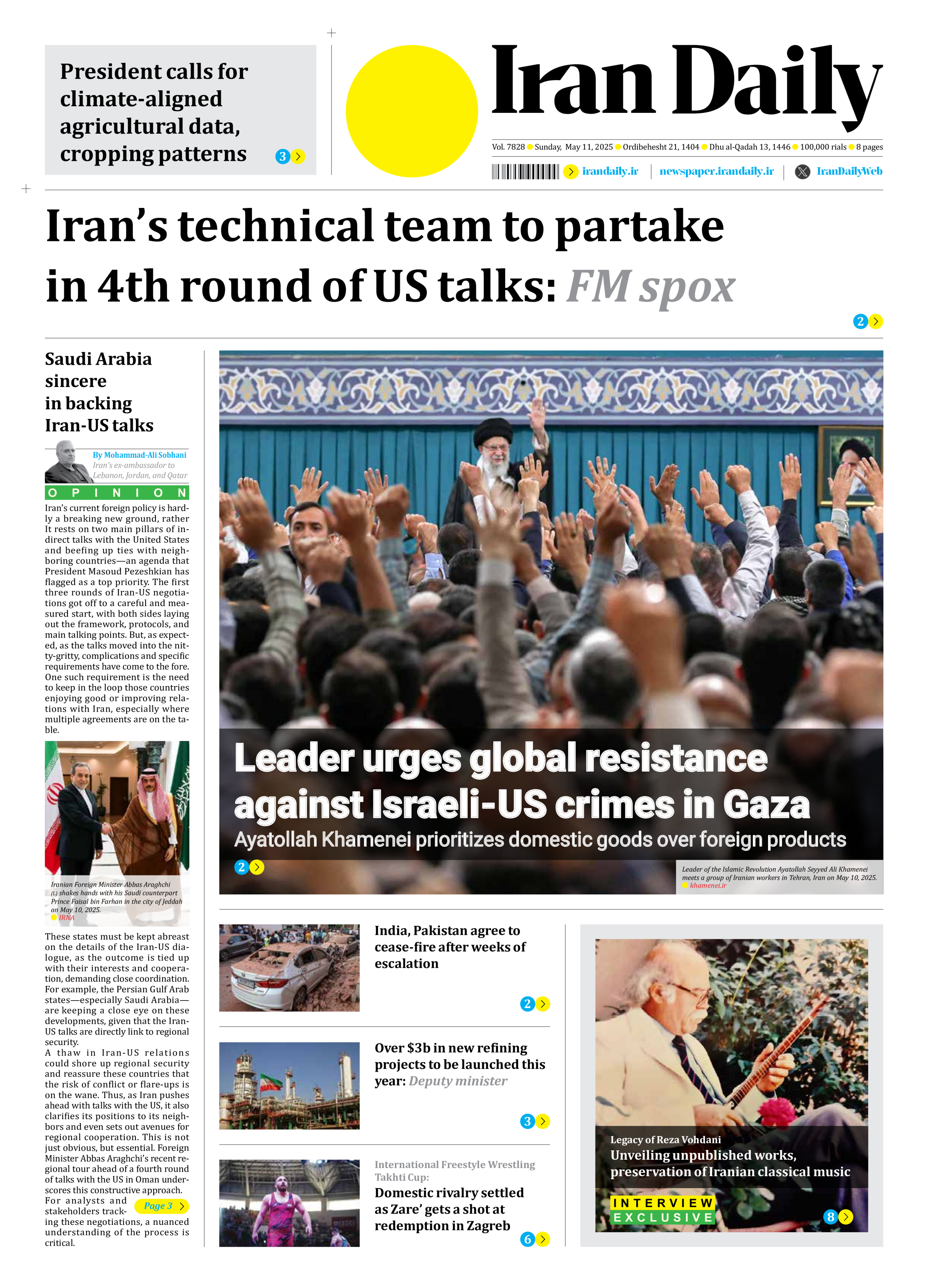
Saudi Arabia sincere in backing Iran-US talks
By Mohammad-Ali Sobhani
Iran’s ex-ambassador to Lebanon, Jordan, and Qatar
Iran’s current foreign policy is hardly a breaking new ground, rather It rests on two main pillars of indirect talks with the United States and beefing up ties with neighboring countries—an agenda that President Masoud Pezeshkian has flagged as a top priority. The first three rounds of Iran-US negotiations got off to a careful and measured start, with both sides laying out the framework, protocols, and main talking points. But, as expected, as the talks moved into the nitty-gritty, complications and specific requirements have come to the fore.
One such requirement is the need to keep in the loop those countries enjoying good or improving relations with Iran, especially where multiple agreements are on the table.
These states must be kept abreast on the details of the Iran-US dialogue, as the outcome is tied up with their interests and cooperation, demanding close coordination. For example, the Persian Gulf Arab states—especially Saudi Arabia—are keeping a close eye on these developments, given that the Iran-US talks are directly link to regional security.
A thaw in Iran-US relations could shore up regional security and reassure these countries that the risk of conflict or flare-ups is on the wane. Thus, as Iran pushes ahead with talks with the US, it also clarifies its positions to its neighbors and even sets out avenues for regional cooperation. This is not just obvious, but essential. Foreign Minister Abbas Araghchi’s recent regional tour ahead of a fourth round of talks with the US in Oman underscores this constructive approach.
For analysts and stakeholders tracking these negotiations, a nuanced understanding of the process is critical.
Page 3







